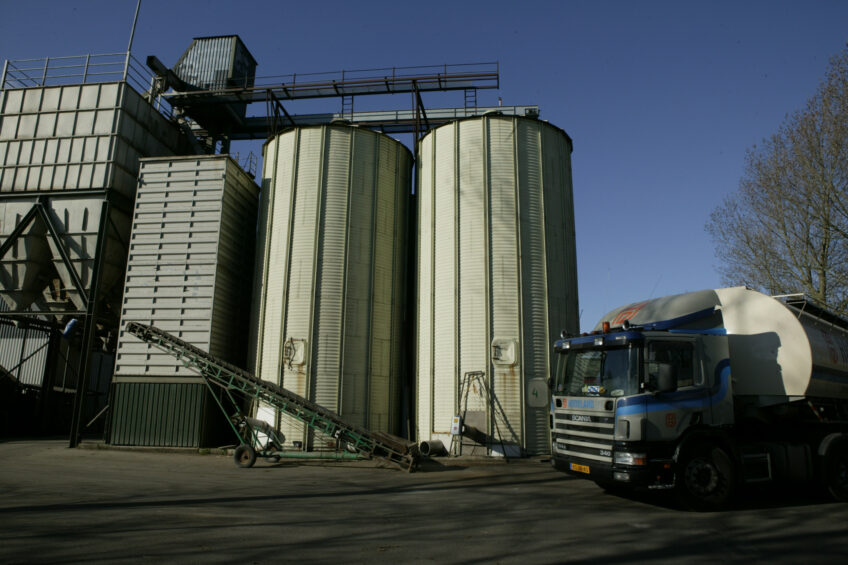Deindustrialisation threatens Europe’s feed industry

Analysts warn that the European feed industry could fall victim to deindustrialisation amid challenges facing the EU economy. This trend may lead to the permanent closure of some facilities and the relocation of others to countries with lower operational costs and less stringent environmental regulations. As a result, the industry faces significant shifts that could impact production and competitiveness.
Although there is no consensus about the scale of the trend, deindustrialisation in Europe is happening. A combination of record interest rates, waning global demand, massive industrial subsidies in China, the USA and some emerging markets, and, most importantly, high operational costs have been laying waste to Europe’s industrial base. Against this background, the EU lost almost a million manufacturing jobs in just 4 years, a 2024 study by the European Trade Union Institute showed.
Feed industry under pressure
Not all economic segments were believed to be in equal danger. Over the past few years, the general belief was that industries with a high dependence on foreign markets and those with high energy costs are primarily in danger. Everything related to the food chain is believed to be on relatively safe ground.

Potential relocation of feed additive production
However, the feed industry may fail to maintain its capacities intact in the face of the ongoing deindustrialisation, warned Justinas Liuima, Insights Manager at data analytics company Euromonitor International. In particular, she warned that some feed additive production capacities could be moved outside of the EU.
Rising operational costs threaten competitiveness
“The European animal feed industry is facing pressures from higher energy costs, stringent environmental regulations, and increasing labour costs,” Liuima said. “These factors elevate production costs and make European production less competitive in comparison to other regions.”
Environmental policies challenge feed additives
The EU’s Green Deal and associated policies that target greenhouse gas emissions and nitrate pollution, impose significant compliance burdens on industries such as feed additives, which rely on energy-intensive processes and chemical inputs, Liuima admitted.
Smaller firms struggle with rising costs
“In the long term, these pressures could erode the competitiveness of European producers, particularly smaller firms that are less able to absorb rising operational costs or invest in new technologies. This could lead to a gradual hollowing out of the industry, as companies would scale back operations and potentially lose market share in the global market due to less competitive pricing,” Liuima warned.
Innovation and sustainability offer hope
On the bright side, Europe’s leadership in innovation and sustainability can help to develop high-value, eco-friendly feed additives and gain greater market share in these niche market segments. However, Liuima warned that this factor alone would not fully compensate for potential losses coming from generally higher operating costs.
Global production shifting to lower-cost regions
“Countries in Southeast Asia or Latin America often offer lower labour costs, lower energy prices, and less stringent environmental regulations, making them attractive for cost-sensitive industries like feed additive manufacturing,” Liuima said.
What’s more, feed additives are manufactured by multinational companies that have various options for where to shift production of bulk additives, such as amino acids or vitamins, restricting European production capacity to high-value products and R&D activities.
Challenging transition
However, production relocation isn’t without its challenges. The deindustrialisation is not imminent as production relocation requires significant upfront investments, the analyst claimed, suggesting that European policymakers still have time to make necessary adjustments.
In addition to the upfront costs, the move can cause temporary supply chain disruptions and potential quality control issues.
“Moreover, the EU’s strict import standards for feed additives could limit the feasibility of production relocation if non-EU products fail to meet regulatory requirements,” Liuima said, assuming that any production relocation activities would be well-weighted by the companies.
The impact of production outsourcing is also likely to be highly uneven across European countries, the analyst said. Western European countries such as Germany, the Netherlands, and Belgium, with generally higher operating costs, might face worse pressures than Eastern European countries such as Poland or Romania, where operating costs remain lower, she added.
Falling livestock production
The deindustrialisation crisis in the European feed industry has another dimension.
Livestock and poultry imports from non-EU countries could increase and hamper European livestock and poultry production, as European farmers face generally higher operating costs and feed prices, Liuima warned.
“The EU already imports significant volumes of poultry and meat from Brazil or Thailand and feed ingredients such as soybeans from South America, often at lower prices than domestic alternatives. This influx of cheaper products, combined with the rising prices of domestic animal feeds, will continue to undercut European livestock and poultry producers,” Liuima said.
Lean transformation is the answer

European companies should streamline operations processes and adjust costs where possible to stay competitive on a global scale, Patrick Charlton, Alltech VP of Europe, commented.
“The last few years have undoubtedly been challenging for the European feed industry, particularly when compared to the relative calm for the previous decade. However, as with all challenges comes opportunity,” Charlton said, speaking about the deindustrialisation threat.
The industry has had to respond to inflationary increases in energy, raw materials and so on with a backdrop of growing legislation.
As such, companies have had to become more innovative in looking at solutions to these problems and, as such, have managed to create efficiencies and, as a result, a leaner business, Charlton noted, assuming that the impact in feed additive production has been largely the same.
According to Charlton, European companies have had to look at their businesses from top to bottom. In particular, a focus on product development and research to bring new technologies and services to help customers achieve their goals has been key to success.
“The Darwinian theory ‘that it is neither the strongest nor the fittest that will survive, but those most adaptable to change’ has never been more relevant in recent years,” Charlton stressed.
“Europe Agri has always been built on a mantra of ‘the safest food in the world’. Undoubtedly, the industry will continue to see mergers, exits, and new entrants as a result of the headwinds outlined, but European consumers will continue to demand the same quality and food safety they have come to expect,” Charlton said. In his opinion, the opportunity remains for customer-focused businesses striving to be part of the food chain that provides that essential ingredient.
“In a world where the food supply chain has never been more under the microscope, the words ‘safe’, ‘traceable’ and ‘local’ have never been more important,” Charlton concluded.







